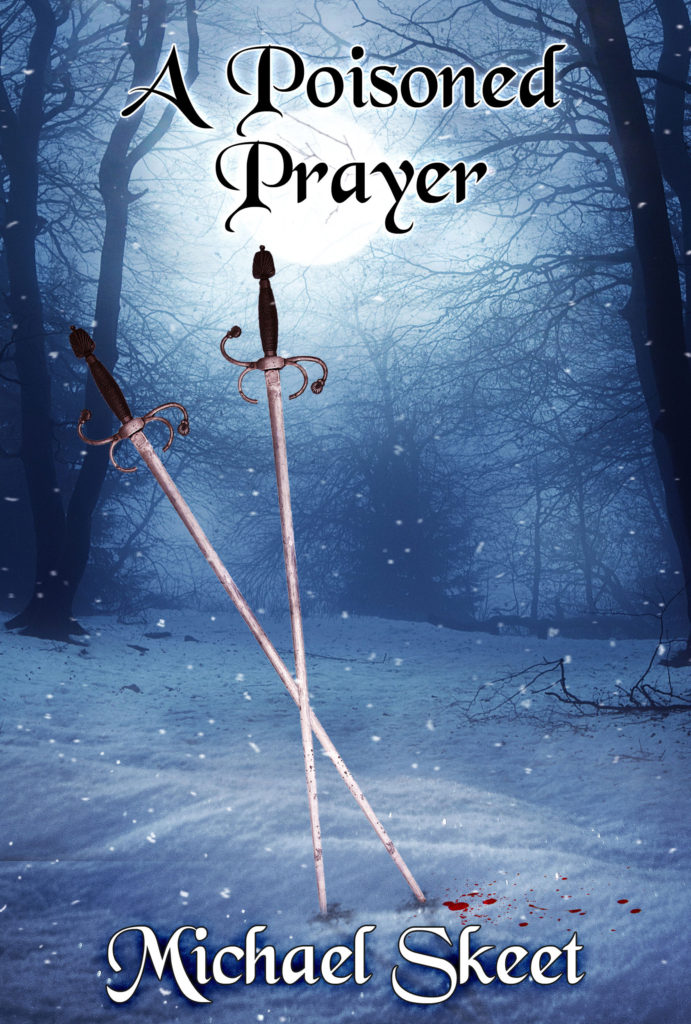A Little Bit of Extra Flavour
Guest post by Michael Skeet
Alternate History in A Poisoned Prayer and A Tangled Weave
I’ve always been an avid reader of historical fiction (I wanted to be Dorothy Dunnett when I grew up). When I discovered alternate history in the late 1980s (“Counting Potsherds” by Harry Turtledove; Lest Darkness Fall by L. Sprague deCamp) I knew I just had to write in that subset of SF. My first successful effort, “Near Enough to Home,”appeared in Arrowdreams and then was republished several times, encouraging me to write further.

That said, the world of A Poisoned Prayer and A Tangled Weave didn’t start out as an alternate-history world. It was intended to be just a standard-issue fantasy version of the France of Louis XIV. But I quickly got bored with Louis Le Grand, mostly through over-familiarity. I’m also interested in both Napoleons, and one day I typed the word “emperor” into the story where I had mean to type “king”, and suddenly I wasn’t bored anymore.
Some things came fairly quickly to me once I’d decided I wasn’t going to confine myself to the existing timeline (what the alternate history crowd refer to as OTL): for one thing, my emperor was going to be descended from the dukes of Burgundy (whose line died out, in OTL, in 1477 when Charles the Bold turned out to be a bit too bold for his own good). No particular reason for this, I just happen to like the Burgundians and don’t care that much for the Valois.

The primary focus of A Poisoned Prayer wasn’t the alternate history, though. Unlike my approach in”Near Enough to Home” and the novel it inspired (Dixie’s Land), the world was not a primary character. I thought that Lise, Rafael, Robert et al were of sufficient interest that the alternate history could be just a little something extra, a bit of Sichuan peppercorn let’s say, to add a little bit of zip to the flavour of the story.

As a result, the political and even religious background of these books isn’t provided as more than a background sketch. I know much more about this world than I’ve let on in the novels, believe me. But I’ve put into them what world-building information is needed to make the story work. And no more. If I write any more about this world—and I’d like to—I will give that writing a bit more of a political slant, and reveal more of the world.
Sometimes even a minimalist approach to alternate history can get you into trouble. One person complained about the world-building in A Poisoned Prayer because she thought a Burgundian emperor would have made his capital in Dijon rather than Paris. Another was taken aback that there was any alternate-history content at all in a fantasy. Well, there’s no pleasing everybody, I suppose. And there’s a lesson in this, too: write what you like and what the story needs, and don’t worry overmuch about what others might say.